
Namibia is one of the most breathtaking countries in Africa. With more than 100 mammal species, 300 species of birds, and vast landscape, it’s a photographer’s dream!
With so much to see, it’s best to break up the country into multiple trips. To make things a little bit easier, I’ve put together a few itineraries from my past road trips through Namibia.
Here are my top road trip itineraries for Namibia!
South Namibia: 7-day Itinerary
Day 1-2: Arrive in Walvis Bay
Walvis Bay is famous for its flamingo lagoon, pelicans and migrations. One of the best ways to explore the area is with a 4×4.
You can tackle the dunes and go on off the beaten track adventures.
Driving around Namibia is possible on your own, but you need to know basic mechanical skills like changing a tire. With vast distances between destinations, weak cellphone signal, and a small population, you can’t rely on other cars coming past frequently.
Things to Do in Walvis Bay:
- Take a scenic flight over Walvis Bay.
- Go on a living desert tour.
- Go see the pelicans and flamingos.
Where to Stay in Walvis Bay:
Flamingo Villas Boutique Hotel: I stayed here because I wanted to as close as possible to the flamingos! It’s within walking distance from the beach where they gather in massive groups.
Read More: 10 Essential Tips for Road-Tripping in Namibia
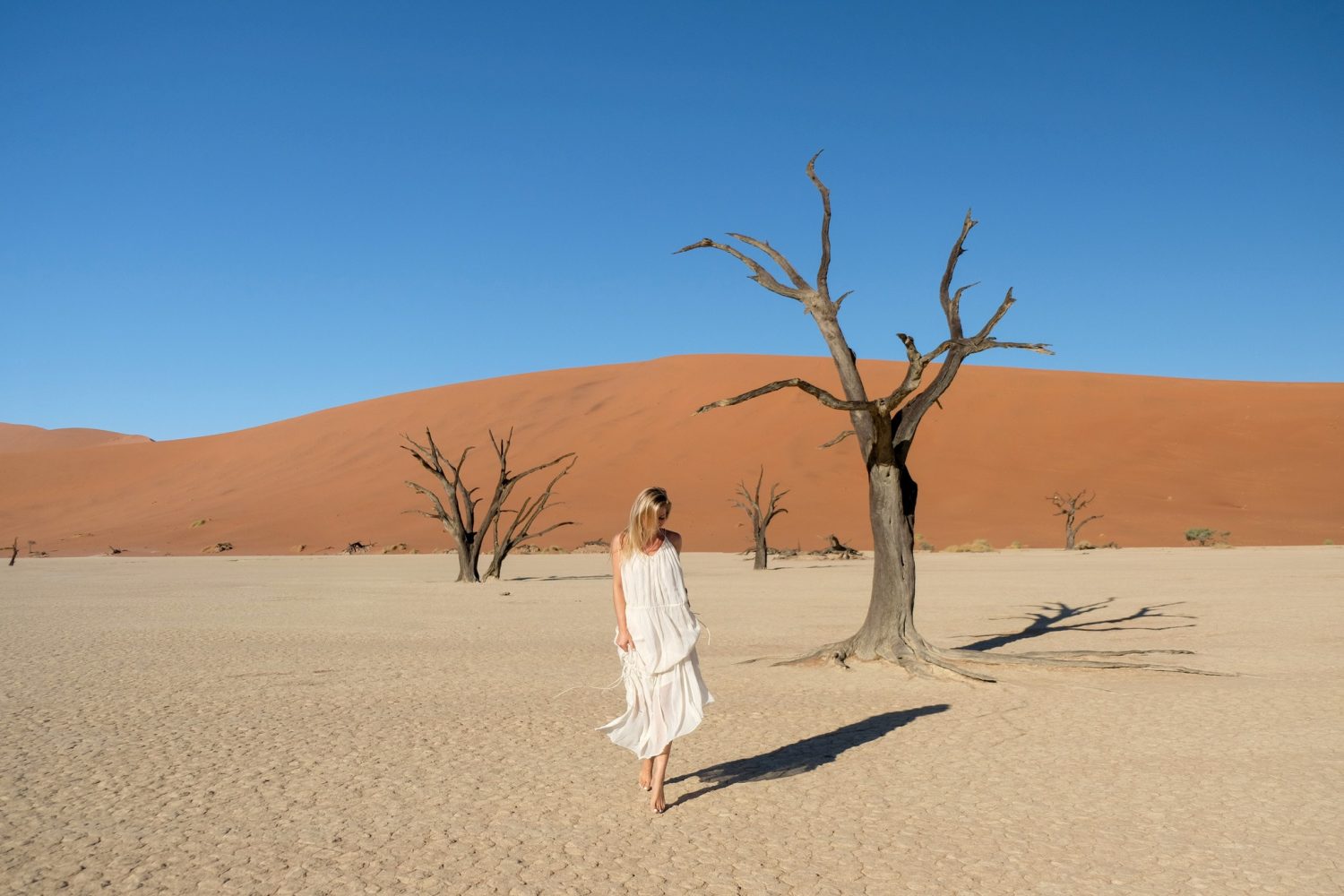
Deadvlei
Day 3-4: Sossusvlei
Sossusvlei is one of the top destinations in Namibia. It’s famous for its massive dunes and ancient camel thorn trees.
You’ll find Sossusvlei inside Namib-Naukluft National Park. I highly recommend staying inside the park’s boundaries so you can enter Sossusvlei for sunrise!
Things to do in Sossusvlei:
Big Daddy Dune: The Big Daddy Dune. It’s the tallest dune in Sossusvlei and is over 1,000 feet tall! If you’re feeling up to the challenge, hike to the top for some incredible views!
Deadvlei: One of the most iconic landmarks in Sossusvlei is Deadvlei. It’s an area that’s home to 900-year-old dead camel thorn trees. The pitch black trees are juxtaposed against the cracked white clay, and the contrast is stunning! It is a bit of a walk to get there so bring water and stay hydrated.
Where to Stay:
Little Kuala: I stayed at Little Kuala Lodge, which is outside the park. It consists of 10 villas and is surrounded by the wilderness. Each suite has a private pool, indoor and outdoor showers, and a rooftop bed where you can spend your night stargazing.
Sossus Dune Lodge: Sossus Dune Lodge is one of the few lodges located within the national park. Choose from the dune chalets or splurge on a honeymoon suite.
Read More: Tips for Visiting Sossusvlei in Namibia

Wolwedans Dunes Lodge
Day 5-7: Wolwedans
Still located in Sossusvlei, the Wolwedans Dunes give you a chance to experience the vastness of Namibia. There are two different lodges within the dunes, and both have a special place in my heart.
If you have the time and the budget, I recommend staying at both!
The Wolwedans Dune Lodge is a five-star hotel in the middle of the desert. It’s located on top of a dune plateau and offers a one of a kind experience.
The main lodge is divided into two chic lounge areas. There’s a massive deck with a lounge area, a swimming pool with hammocks and two dining areas.
The lodge also organizes sunrise hot air balloon rides and guided game drives!
Read More: Staying at Wolwedans Dunes Lodge in Namibia
Also within the NamibRand Nature Reserve is the Wolwedans Boulders Safari Camp. While the Dune Lodge is more luxury, Boulders is more off the grid.
It offers four oversize tents that can sleep up to eight guests and are designed to minimize the impact on the natural environment. There’s also the main dining area and a campfire where you can relax with a sundowner and watch the sunset over the desert scenery.
At the Boulders Camp, there are two different packages for activities. The NamibRand active package is perfect for those looking for adventure, and the NamibRand leisure package is designed for luxury and comfort.
On your last day, you’ll want to return your rental car to Walvis Bay and make your way back to the airport to catch your flight home.
Read More: Staying at Wolwedans Boulders Safari Camp in Namibia
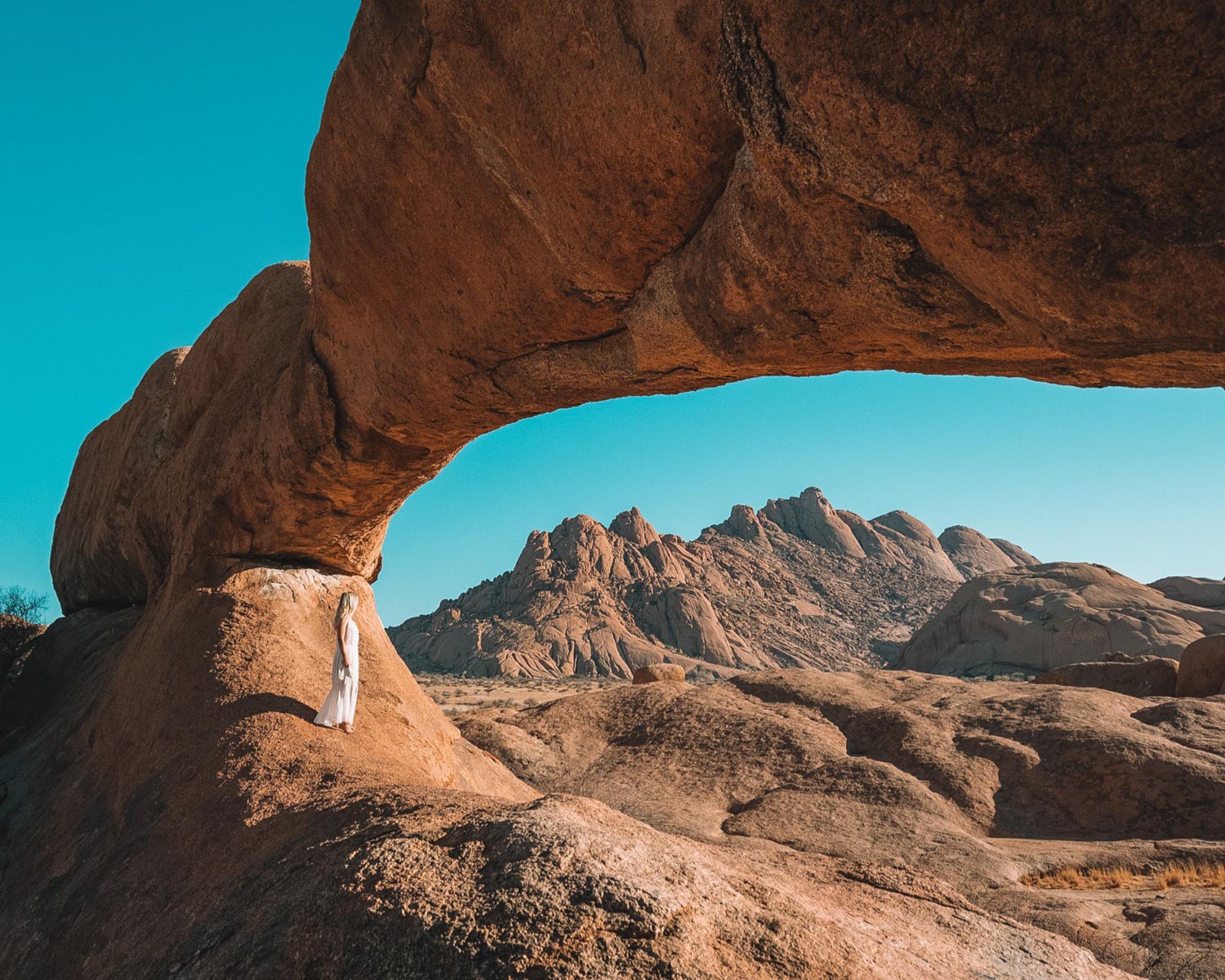
Spitzkoppen
West Namibia: 7-day Itinerary
Day 1: Windhoek
The best way to get to Namibia is to fly into the capital city of Windhoek. It’s a modern city that’s home to misplaced German castles, Neobaroque cathedral spires, and plenty of delicious food.
Pick up your rental car from the airport and spend the rest of the day exploring the city before venturing out into Namibia’s wilderness!
Things to do in Windhoek:
- Visit the iconic landmark of Christ Church.
- Shop at the Namibia Craft Cente.
- Visit the National Botanic Garden of Namibia
- Learn about Namibia’s past at the Independence Memorial Museum.
Where to Stay:
The Olive Exclusive: This is a really cute luxury hotel in the heart of Namibia. You’ll be close enough to all of the city’s top attractions!
Day 2-3: Erongo Wilderness
Located about 2.5 hours outside of Windhoek, the Erongo Wilderness Lodge is where the mountains, desert, and bushveld ecosystems meet. It’s situated in a secluded valley and features 12 luxury tents.
It’s the perfect lodge for those that want to get outside and become one with nature.
Things to do in Erongo Wilderness:
- Go on a nature drive with a guide and visit Paula’s Cave.
- Hike one of the many self-guided walking trails.
- Go on a bird watching safari.
- Take a guided walk in the morning or before sunset.
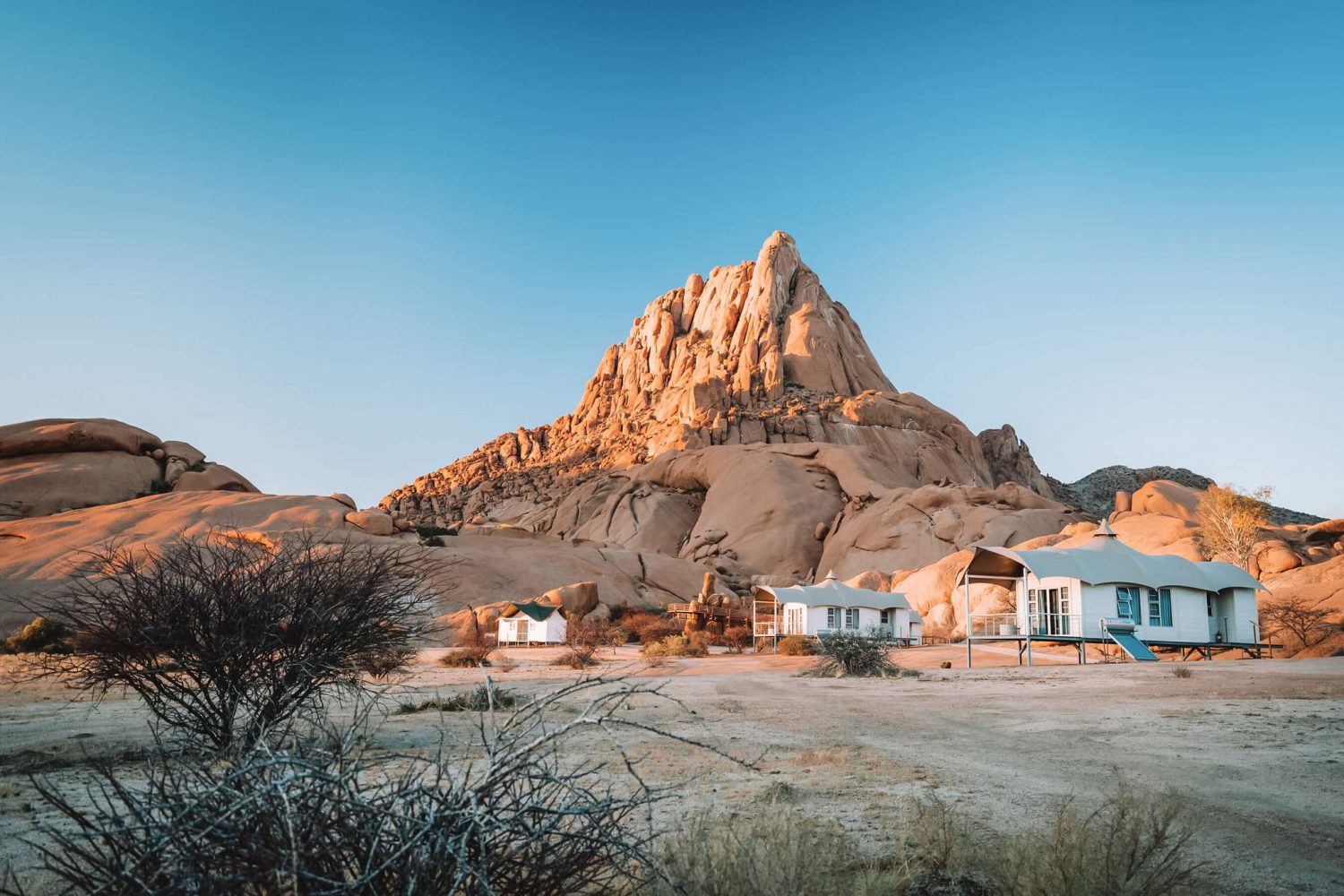
Spitzkoppen Lodge
Day 4-5: Spitzkoppen Lodge
About 4.5 hours away from Windhoek is Spitzkoppen Lodge, a hotel lodged between 150-million-year-old boulders. With a minimalistic approach, the property seamlessly blends into the apricot sand and rugged landscape.
There are 15 one-of-a-kind chalets, each offering an unforgettable VIP service!
Things to do at Spitzkoppen Lodge:
- Go on a guided rock art tour.
- Wander through the nearby caves.
- Tackle one of the many hiking trails.
Before you check out, be sure to stop by the little shop at the lodge to pick up a souvenir. It’s full of handcrafted wonders and gemstones that have been carved by local miners.
Read More: Staying at Spitzkoppen Lodge in Namibia
Day 6-7: Swakopmund
Swakopmund is a quaint little seaside town where you’ll find palm-lined streets and beautiful beaches. A highlight of the area is a day trip to the Cape Cross Seal Colony! It’s a great way to get a taste of the famous Skeleton Coast!
Things to do in Swakopmund:
- Check out the Hohenzollern Building
- Visit the Marine Memorial.
- Go to the Princess Rupprecht House.
Read More: 4X4 Dunes Meet the Ocean Tour in Namibia
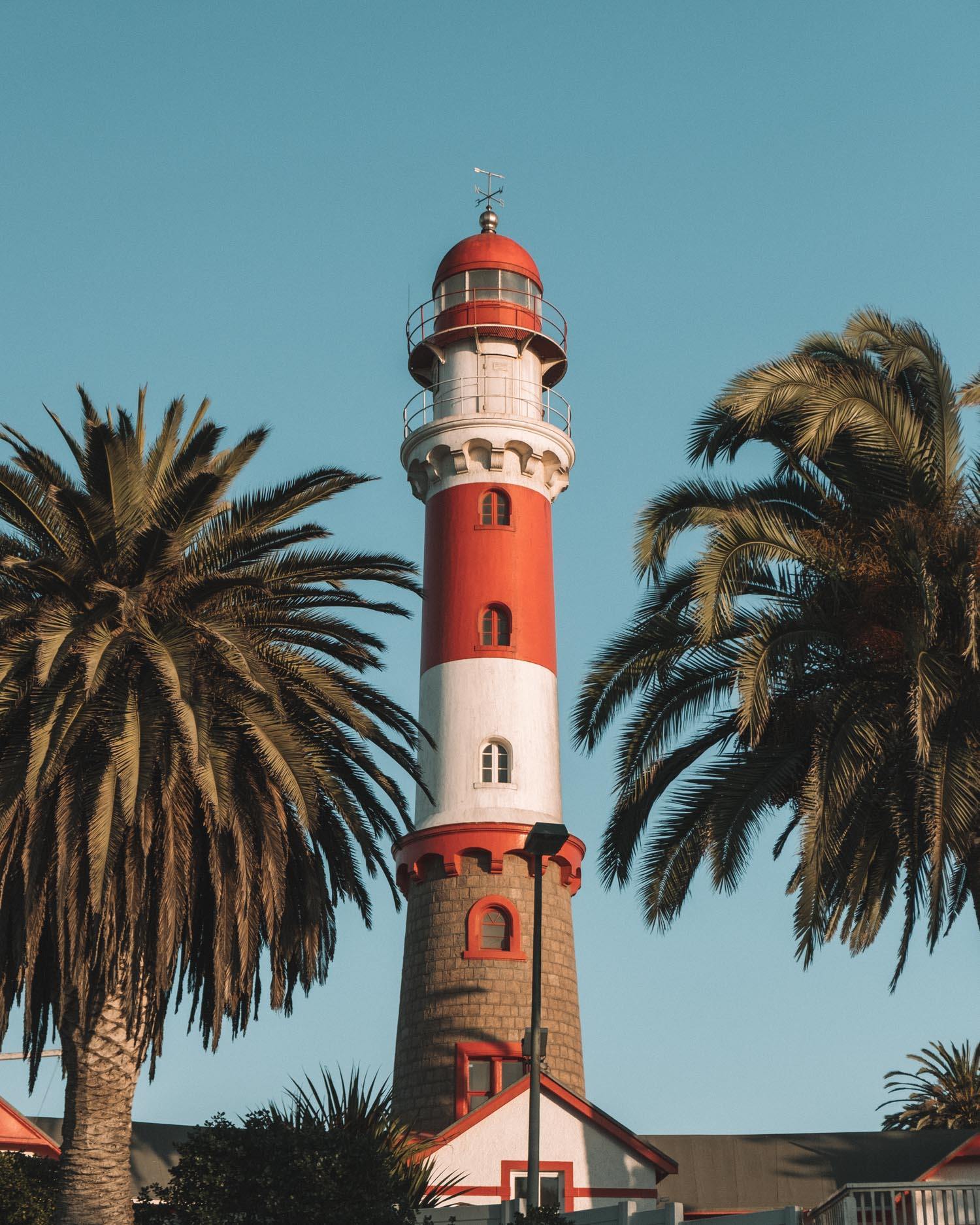
Swakopmund
North Namibia: 8-day Itinerary
Day 1-2: Swakopmund & Walvis Bay
When visiting North Namibia, Swakopmund and Walvis Bay are excellent starting points. You can hire a car and go on a 4×4 tour of Sandwich Harbour and the dunes.
Take the time to hire a kayak at Pelican Point and explore the peninsula. There’s the Atlantic Beach on one side and Lagoon of Walvis Bay on the other.
Where to Stay:
Pelican Point Lodge: If you’re feeling up for it, stay the night at the Pelican Point Lodge where you will have a private balcony overlooking the bay and the desert. You’ll also be able to see the 2,000 seals who have made the shore their home.
The Strand Hotel: If you don’t want to go as remote as Pelican Point, stay at The Strand Hotel. It’s located right on the beach and it has been recommended to me by so many other travelers.

Day 3: Terrace Bay
The next day, you’ll take a four-hour drive up the coast to the iconic Skeleton Bay. It boasts some of the best surfing conditions in the world.
Where to Stay:
Terrace Bay Resort: Terrace Bay offers self-catering houses along with 20 double rooms. The resort is sought after by angler fishers as the Bay has some of the best fish in Namibia.
Torra Bay Campsite: Torra Bay is an excellent budget option. It’s close to the beach but is only open between December and January.
Whether you’re looking for luxury accommodation or you’re on a budget, both are perfect stopping points before reaching Damaraland.
Day 4-5: Damaraland
Damaraland is arguably one of the most scenic parts in Namibia. Here you will find a combination of prehistoric water courses, grasslands, open plains, and sandy wastelands that elephants, rhinos, and giraffes call home.
Things to do in Damaraland:
- Visit Brandberg, Namibia’s highest mountain.
- See the Petrified Forest.
- Go to Vingerklip – a towering limestone that rises to 35m!
- Visit the semi-nomadic Himba tribe.
Where to Stay:
Palmwag Lodge: When staying the night, look into staying at Palmwag Lodge, it’s a paradise right on the Uniab River. It’s considered one of Namibia’s oldest and most popular destinations. There are rooms for every group size from twin rooms to family units, and there are plenty of activities to keep you entertained.
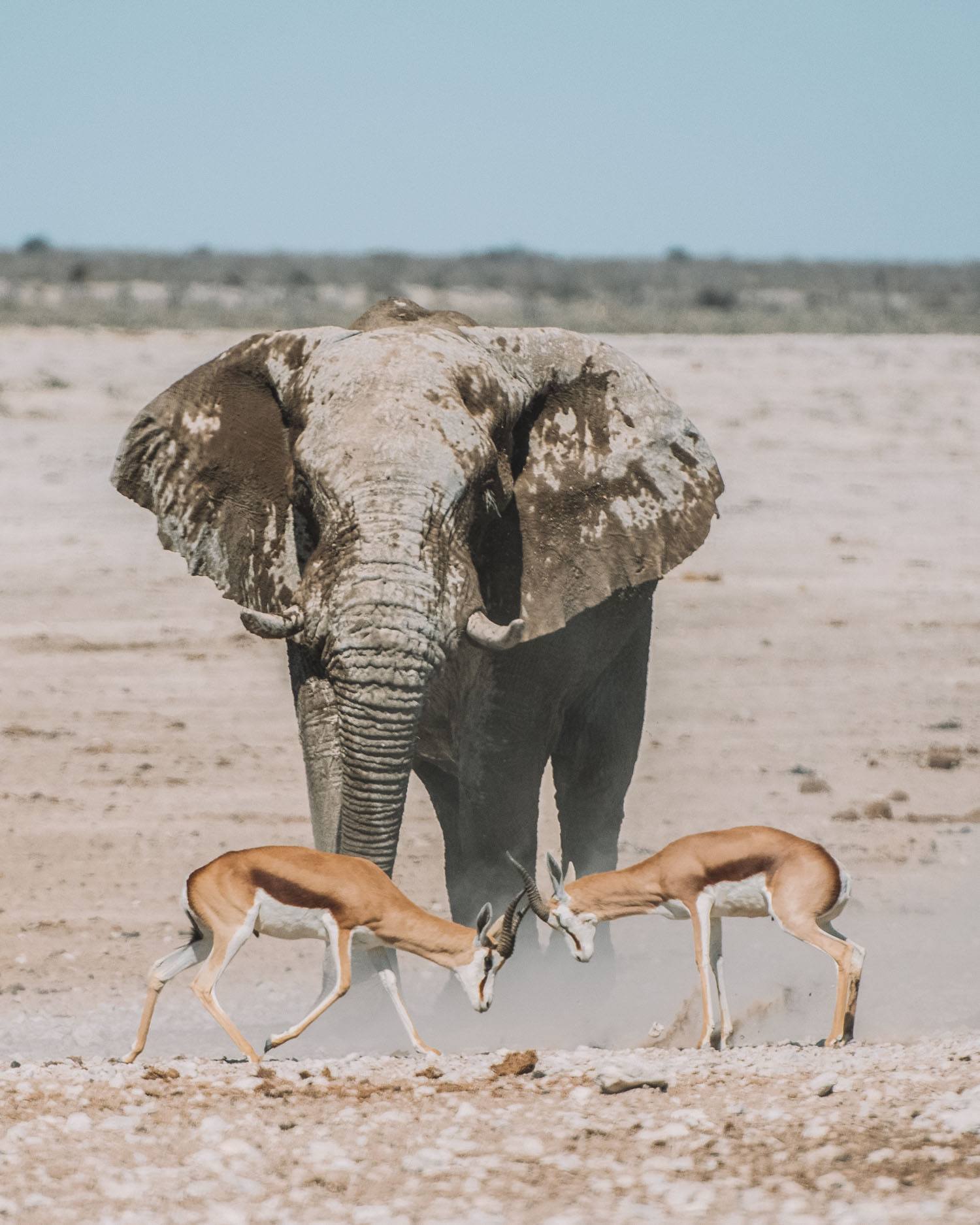
Etosha National Park
Day 6-8: Etosha National Park
Etosha National Park is famous for its salt pan that is so large that it is visible from space! It’s also one of the best places in Namibia to go on safari.
Where to Stay:
Dolomite Camp: Dolomite Camp is the park’s newest and most exclusive camp. It’s located in the restricted western side of the park. Only a limited number of guests are allowed access, and you’ll stay in one of the permanent luxury tents with views of the vast plains. There’s also a swimming pool, a delicious restaurant, a curio shop, and a deck that overlooks a waterhole.
Okaukuejo Camp: For your second night in Etosha, make your way to Okaukuejo Camp. It’s most famous for its floodlit waterhole, and it also has the Etosha Ecological Institute situated within the camp. Wake up early and watch the wildlife visit the nearby watering hole — it’s a one-of-a-kind experience!
Namutoni Camp: On the last night, check-in to Namutoni Camp. Built into an old German fort, it’s proximity to Fisher’s Pan makes it a hotspot for anyone interested in bird watching. After seven long days of exploring, it’s the ideal place to unwind and relax before having to make the journey back to Windhoek. Don’t forget to end your night at the African Fusion restaurant!
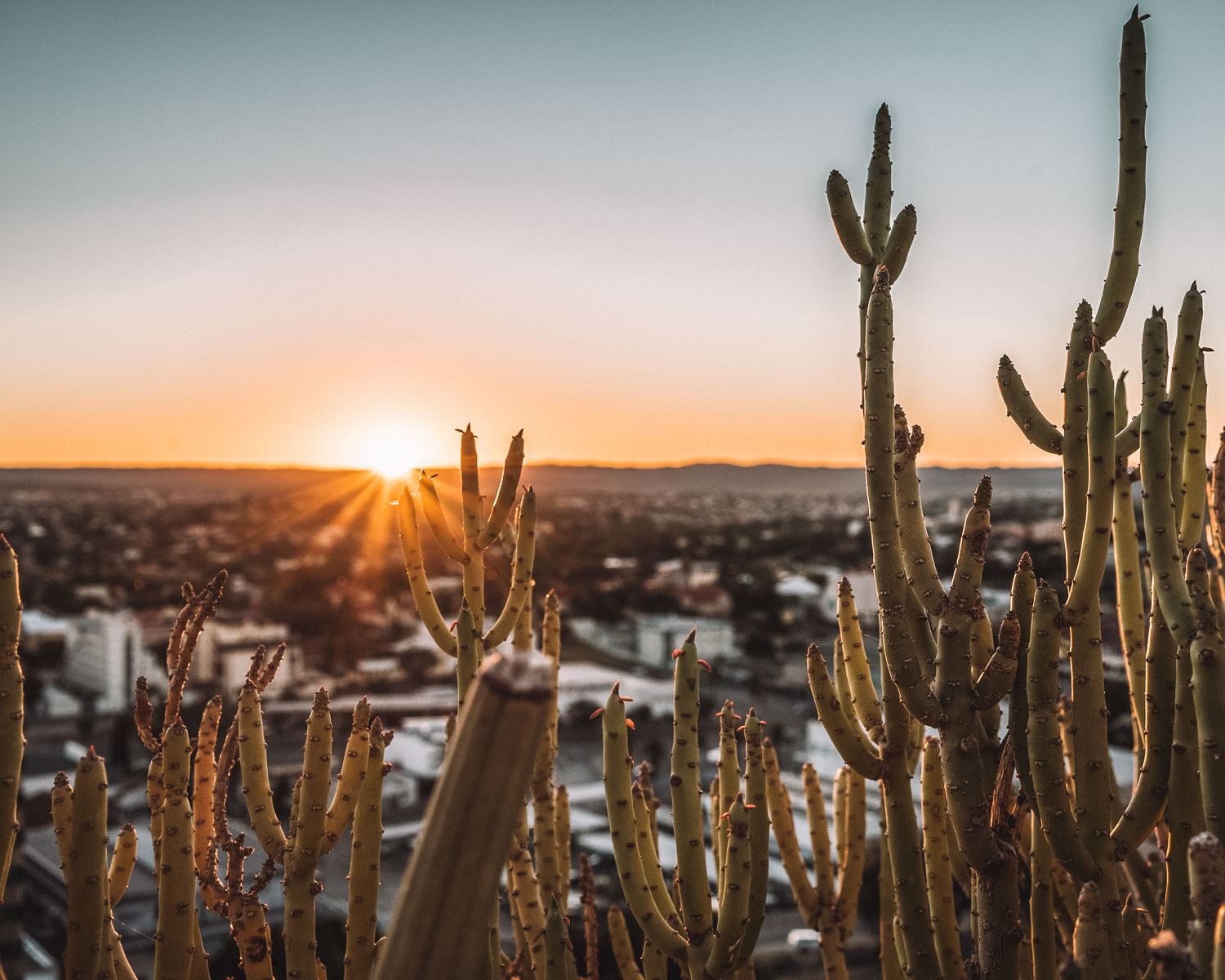
Windhoek
Day 8: Windhoek
Your last day all depends on your flight time. It takes about seven hours to drive from Namutoni to the Windhoek International Airport. If you have the time, try to add a night to your itinerary as a stop in the middle of the drive.
Overall
In the end, there are so many different routes you can take to explore Namibia. You will often find yourself in the middle of the desert, driving hours before your next destination.
But with so much wildlife to see and a wide variety of landscapes, you’ll have an incredible trip no matter which Namibia itinerary you choose!
Do you have a favorite itinerary for Namibia? Let me know in the comments below!
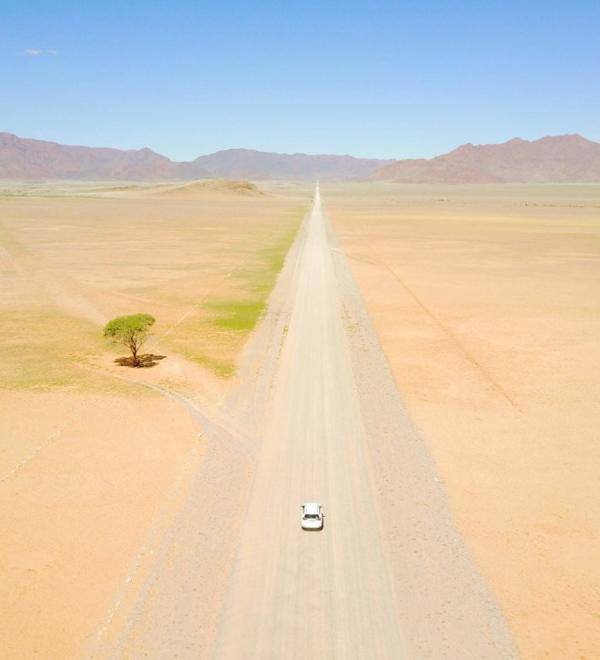
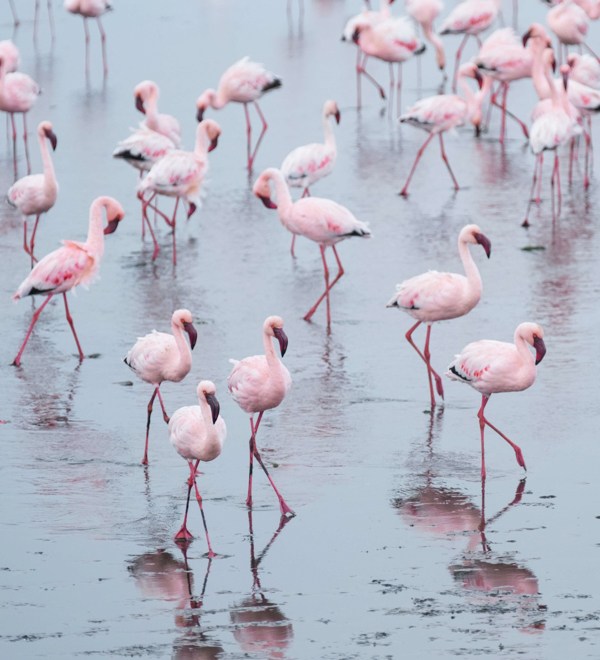
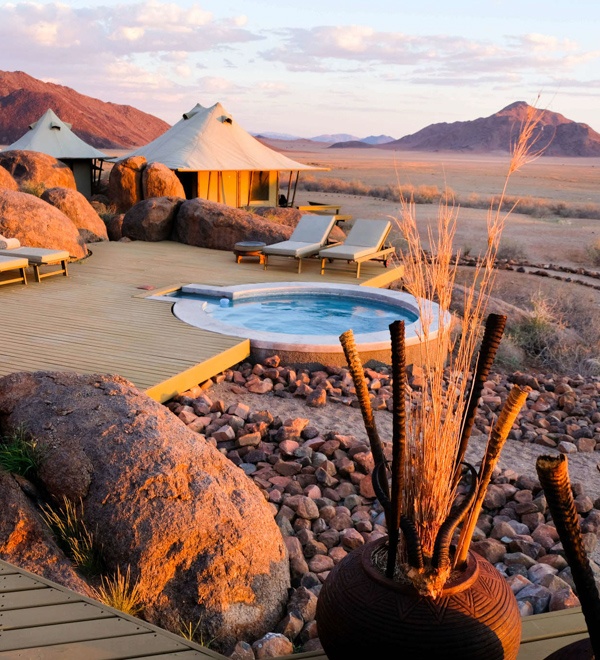
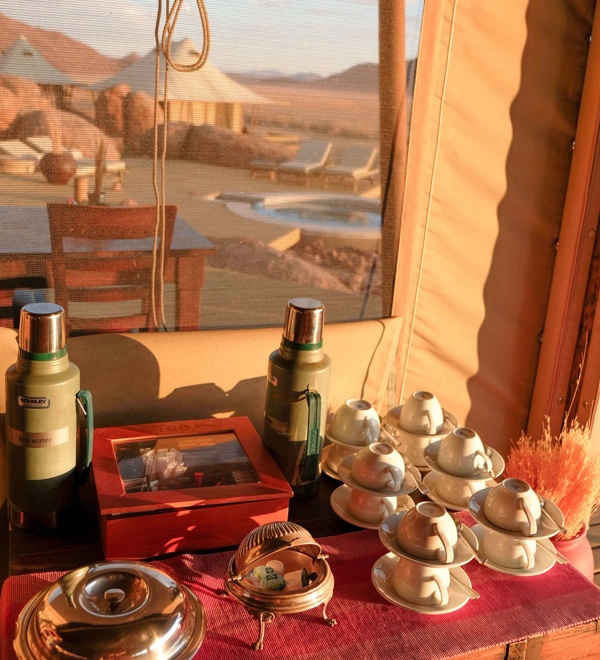
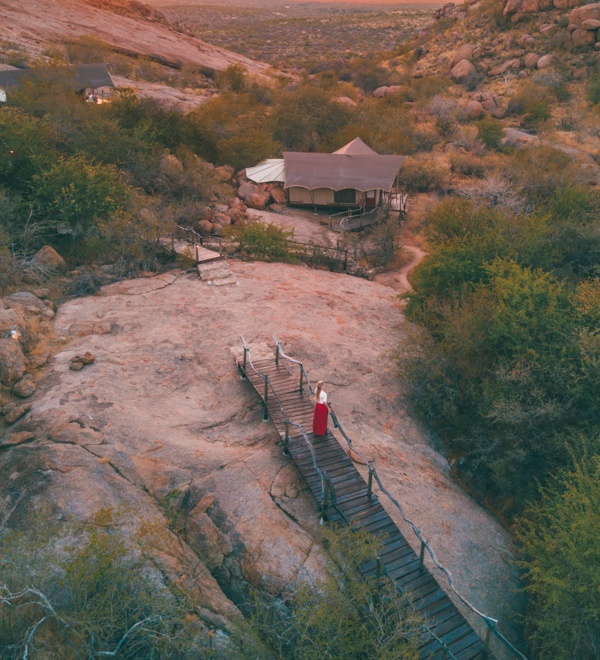
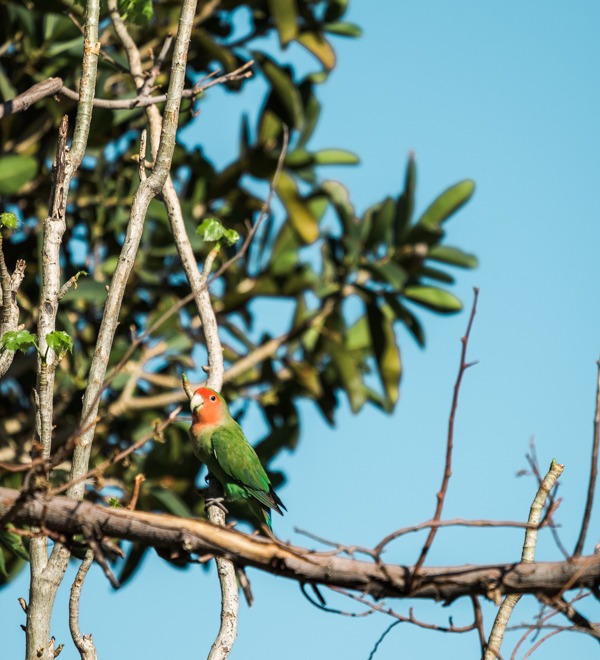
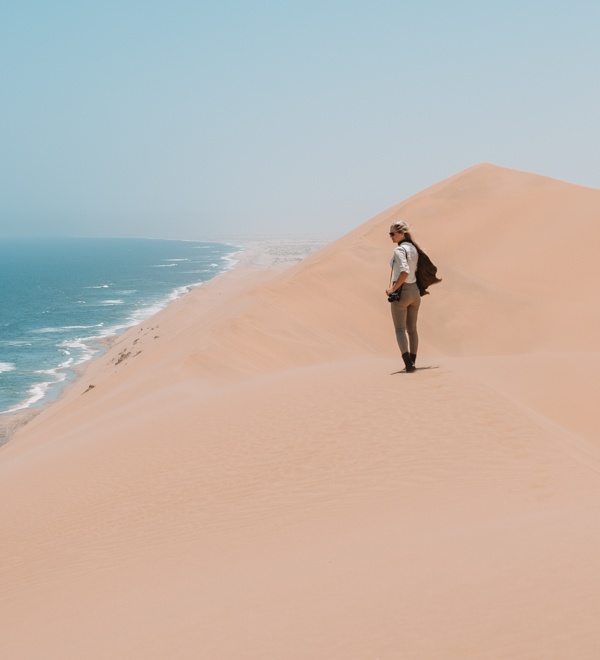
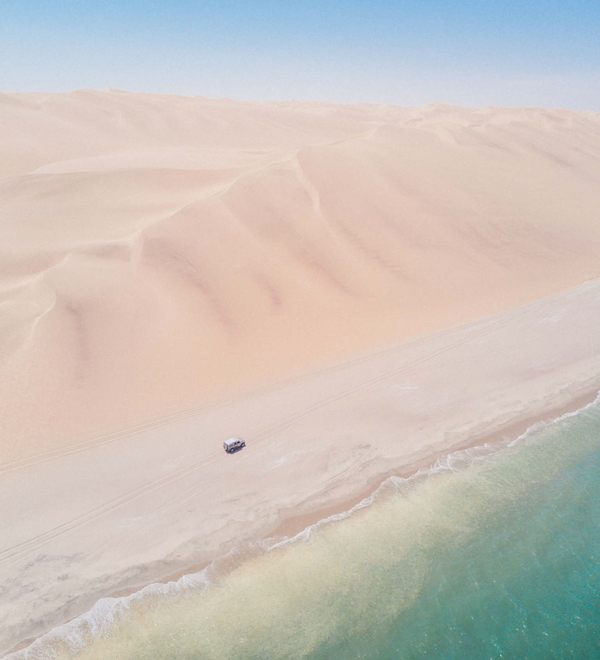
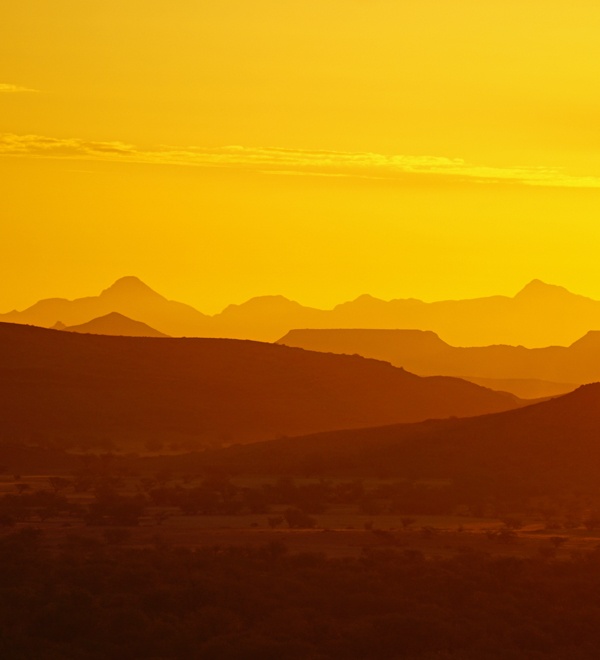
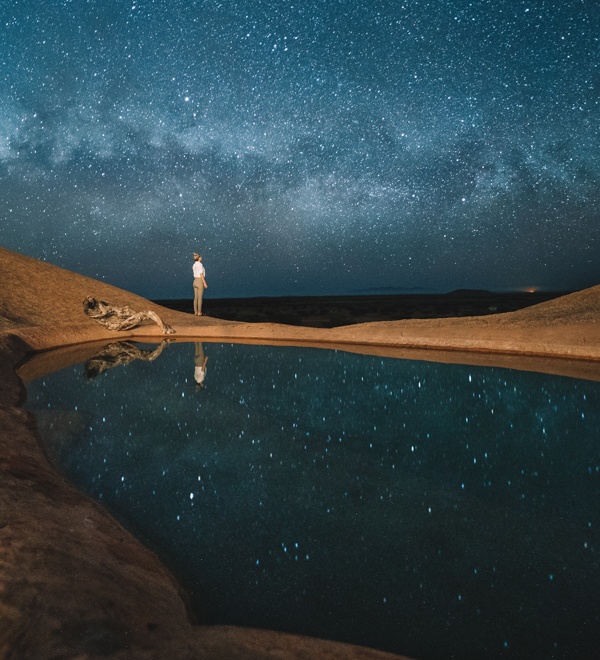
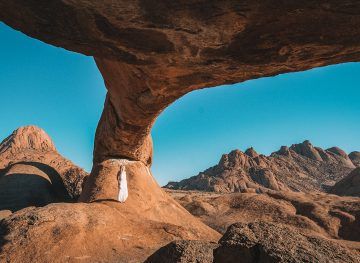
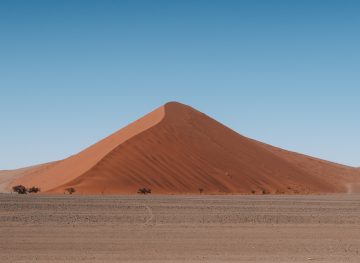
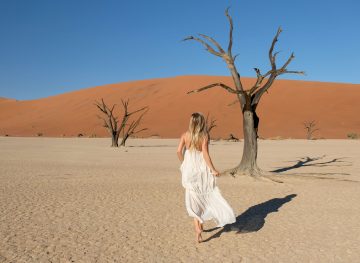
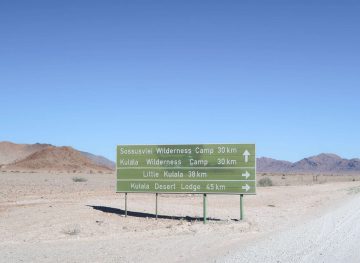
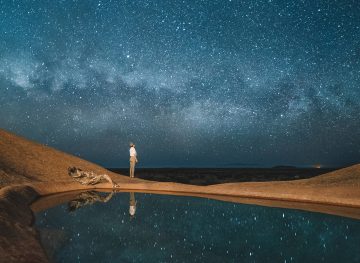
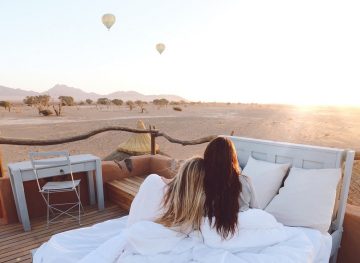




The desert landscape is amazing. The majesty of Africa and diversity is so impressive. I read that modern maps distort the size of Africa – in reality, all of North and South America, Europe, the Middle East, and Australia could fit in the land mass of Africa.
Thank you for posting